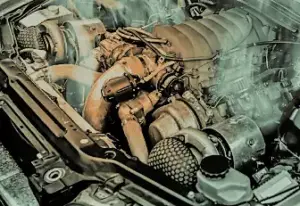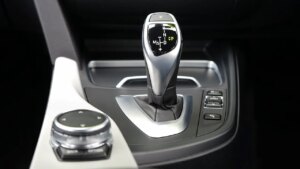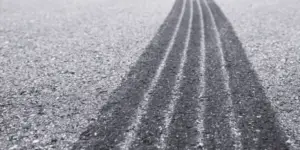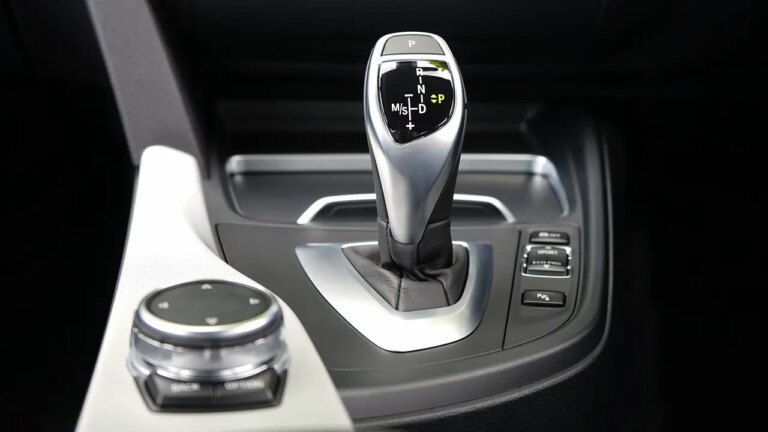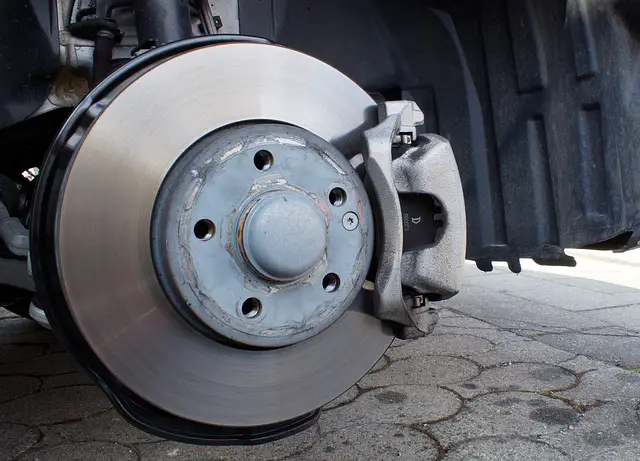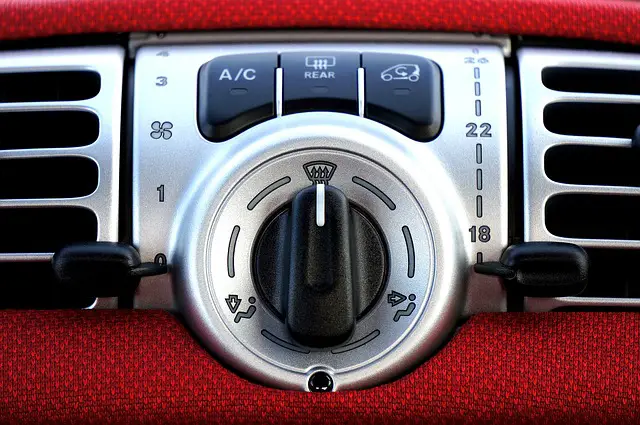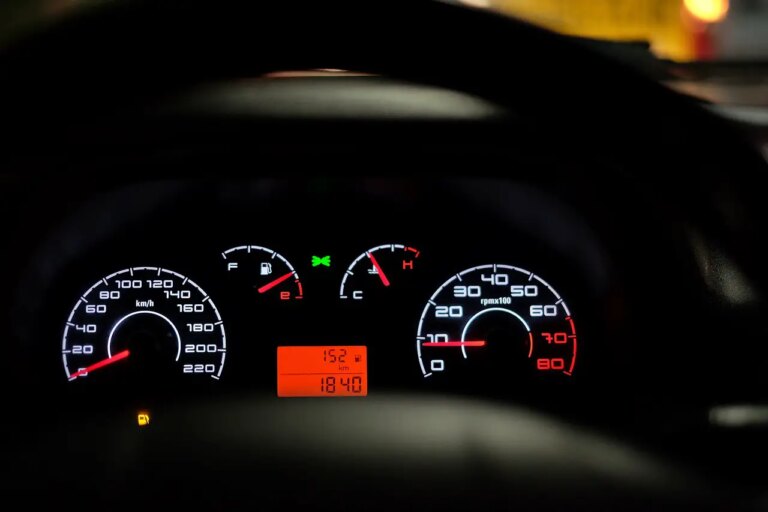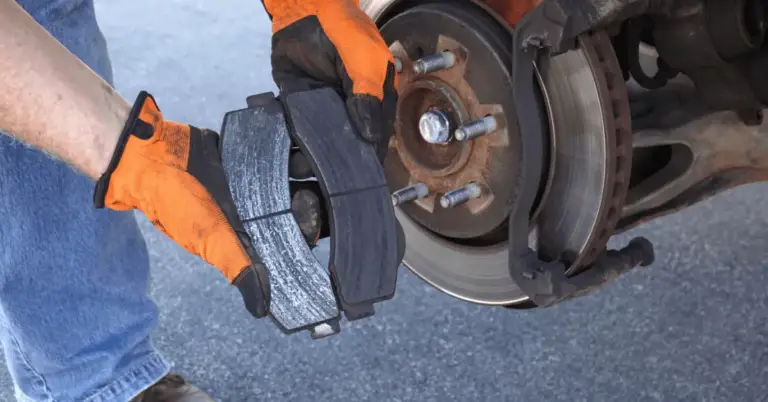If your car is jerking after it has come to a halt, it could mean many things.
Cars that jerk while idling are generally caused by a buildup of dirt and grime in oil and air filters. Your engine may run out of gasoline or oxygen due to a clogged filter or failing fuel injection system, which will make your vehicle judder and jerk. A failed engine mount is another likely cause.
There are some usual causes, but they are different for manual and automatic transmissions.
For manual transmission, the most common causes include a worn-out clutch. It is usually a bad VSS (Vehicle Speed Sensor), a faulty TCU (Transmission Control Unit) sensor, or a solenoid for automatic transmissions.
Other lesser common causes include faulty MAF (Mass Air-Flow) sensor, weak alternator or battery, vacuum leak, moisture in the distributor cap, and blocked catalytic converter.
Let’s discuss them and detail so you can figure out what might be causing car jerks in your car when you have come to a stop.
Manual Transmissions
Manual transmissions have a clutch, which engages-disengages the gear from the engine. If the clutch plates or any part of the clutch system has worn out, it will not properly disengage the transmission from the engine, which results in the car jerking because the engine struggles to push the car forward.
Checking
To check if it’s a bad clutch causing the car to jerk, after coming to a stop, put the car in neutral and check if the car jerking goes away.
Repairing
An auto repair shop can check and repair a bad clutch. There will either be a brand new clutch or replacements of clutch plates. Repairs or replacement costs between $50-$200, depending on the car make and model. Labor can add another $200 to the price.
Popular article with other readers: What Is Clutch Slipping? How To Tell If Your Clutch Is Dying
Automatic Transmissions
Automatic transmissions have a torque converter or automated clutch system instead of a manually worked clutch. Some common problems arise in automatic transmissions that lead to car jerks even when the car is stopped.
Here we’ll explore them.
Faulty TCU (Transmission Control Unit)
The transmission control unit uses solenoids and sensors to move around transmission fluids or control the automated clutch pack, to upshift and downshift the gears.
Vehicle Speed Sensor works with the TCU and ECU (Electronic Control Unit) to regulate the gearing and air-fuel ratio depending on the RPMs and speed.
Faulty sensors, low transmission fluid, clogged transmission fluid filters, worn clutch packs, and bad torque converters may cause the car to jerk when the car is stopped. The car jerking is caused by the wrong readings communicated between the TCU and ECU.
The false readings cause delayed upshifts, downshifts, and idles even when the car is stationary.
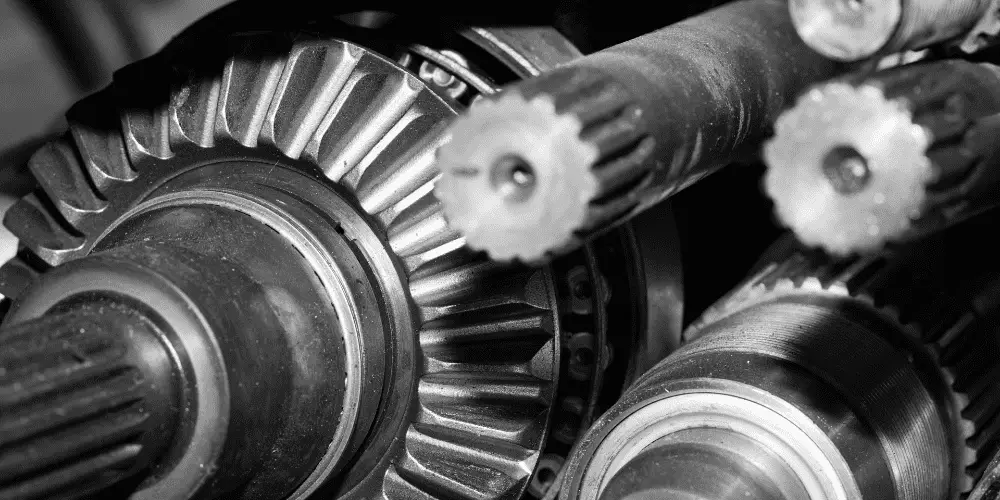
Checking
There is no proper way of checking which specific part of the automatic transmission is faulty, but you can check for sure if the transmission is at fault by checking the shift timings and the response of the transmission when you switch between gears. A proper technician can narrow it down.
Repairing
Repairs can only be done by a professional and cost anywhere between $70-$1250, depending on the problem and car make and model. Many car shops send automatic transmissions away to specialists rather than get involved in this more technical car repair area.
Closely related advice: Car Jerks When Slowing Down – Dangers and Fixes
Fueling Problems
Fuel systems include fuel injectors, rails, fuel pumps, fuel filters, and fuel lines. Common problems are dirty fuel injectors, blockage in the fuel delivery system, or bad fuel that cause a loss of fuel pressure during combustion.
This failing fuel pressure causes the car jerk when the car is idling. Dirty fuel has less energy density and causes less energy to be produced every time combustion occurs.
Checking
You’ll know if it’s a faulty fueling system by checking if there are any car jerks during acceleration. You feel inconsistent or jerky accelerations due to loss of fuel pressure, and another sign would be a rough idle.
Our most commonly read article relating to rough idle: Can Low Oil Cause Rough Idle? [ANSWERED]
Repairing
Repairing would include cleaning and servicing the complete fuel systems. It is better to have it done by a professional because different parts of the fuel systems can be hard to locate, and the cleaning requires specific solutions and tools.
The overall cost would be between $50-$100 because it is a labor-intensive task.
Ignition System
The ignition system is responsible for creating a spark to burn the air-fuel mixture present in the combustion chamber. This consists of an ignition coil pack, distributor cap, spark plugs, and cables and covers.
The ignition coil pack creates the electrical charge, and a cable carries the charge to the distributor, distributing the electrical charge to each spark plug plugged into each cylinder.
Sometimes moisture can accumulate in the distributor cap, which hinders the electrical charge’s intensity, leading to misfires and insufficient power production. This is most noticeable when the car is idle because low RPMs produce less electrical power.
Sparks plugs can also be the reason for the misfire. Spark plugs have a lifespan; buildup accumulates over the ignition point over time, reducing the spark power or placement.
In other cases, the insulation of the spark plug covers and cables leaks, causing an arc jump, and the spark bleeds out, reducing spark intensity.
Checking
Checking the ignition system requires a physical inspection of all the components. It is better to have it checked by a mechanic.
Other things you can do to check if the ignition system is failing include; checking for gasoline smell from the engine, exhaust fumes, or in the cabin. If the spark is inconsistent or weak, it will not wholly combust the fuel.
Another thing you can check is for dark or black fumes from the exhaust. Incomplete and unburnt fuel comes out as dark fumes from the exhaust. A car that hasn’t been maintained often suffers from jerking at idle.
Popular related article: What Does A Car Tune Up Consist Of? 8 Must Have Checks
Repairing
A spark plug costs between $20-$75. An ignition coil pack costs around $80-$250. Spark plug covers and cables cost around $40-$80. Any moisture in the distributor cap will require drying, usually free of charge.
Worn Out Engine Mounts
Engine mounts bind the engine to the chassis and also absorb engine vibrations. Bad engine mounts cause car jerks when stopped at a red light or idling.
Checking
You put the car in reverse, hold down the brake pedal press the race pedal slightly (while releasing the clutch for manual transmissions). If there is a loose engine mount or a damaged engine mount, then car rumbling or shuddering will be felt primarily from the side of the faulty mount.
Get the engine RPM well above the idle RPM to confirm the engine vibrations increase with the RPM.
Repairing
The engine mounts are steel brackets mounted strategically on the four corners of the engine. The engine mounts will cost between $50-$150, and the labor costs $200-$400, depending on the car’s make and model. This can be difficult to do because the engine may have to be hoisted on some car models to affect the repair.
Air Intake System
The Air Intake system includes; a throttle body and a set of sensors – a MAF (Mass Air-Flow) sensor, an oxygen sensor, and a few others. There is an air filter, Air Control Valve, and a vacuum in the engine that determines the incoming load on the engine.
The air filter gets dirty after some time and needs to be cleaned or replaced with maintenance. Sometimes if you don’t tend to the dirty air filter, the air filter gets clogged.
This reduces the air volume and decreases the power production causing car jerks when you’re stopped at a red light or idling.
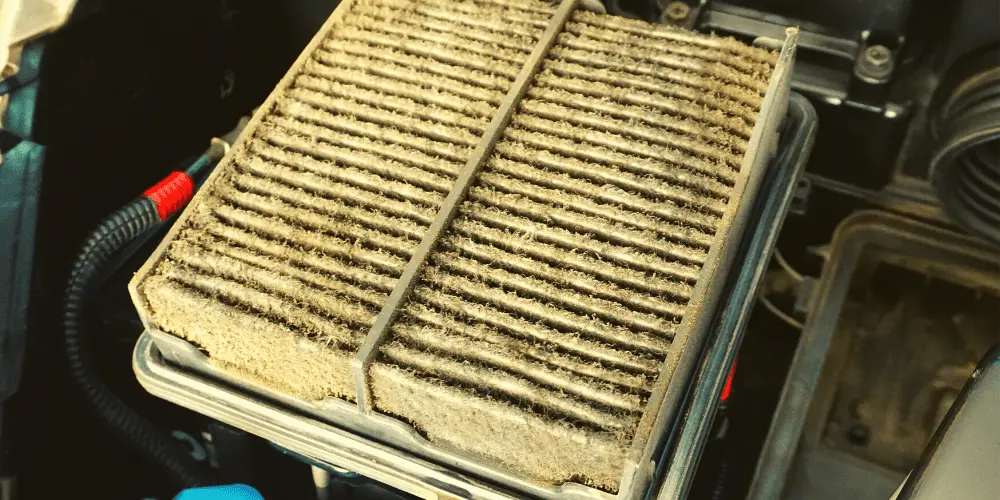
The MAF sensor senses the mass of air coming into the intake manifold. The air control valve lets the air in, and the vacuum in the engine and the oxygen sensor determine the air volume that should be let into the intake manifold.
A leak in the vacuum system sometimes causes car jerks due to insufficient air in the combustion chamber.
Checking
Whenever there is a faulty sensor, the dash lights up a check engine light, and you can attach a scan tool to check for error codes.
Repairing
Repairs usually include replacing the sensors, but the MAF sensor usually needs tuning after installation. You can also clean the MAF sensor using a special Mass Air-Flow sensor cleaner. Airflow sensor cleaner is also used to clean other sensors as part of the air intake system. Repairs cost between $35-$100.
Conclusion
Faults usually cause car jerks when you’re stopped at a red light or idling in fueling, ignition, or intake system. Sometimes check engine lights can be because of a blocked catalytic converter. Newer cars have a different warning light for catalytic converter issues, and it needs proper cleanup if it fails to regen itself,
Car jerking can be most noticeable when you’re stopped at a red light or idling because the engine is producing less power at lower RPMs which go away as the engine revs up again. Regular maintenance and proper car care can prevent any or all problems.


